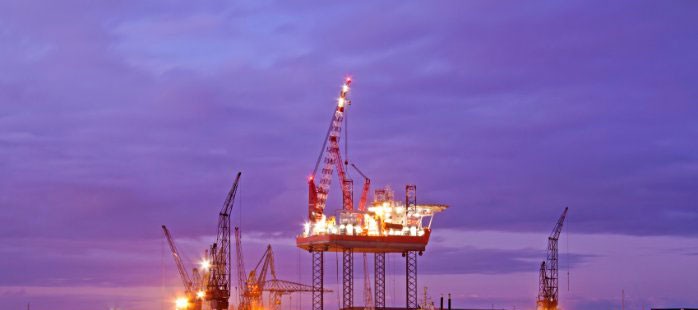Our Opinion: 2016
An oil price recovery?

A few weeks ago the oil price was said to be heading down to $20 a barrel, or even less. The glut of oil was increasing as Iran re-joined the global economy and Saudi Arabia kept pumping furiously. Yet, the oil price has now been quietly going back up – and rapidly. From a low of $28 in January, Brent crude has rallied to just under $40 today. That’s a rise of about 30% in just a few weeks.
It may not last. But if oil has turned a corner, and if it is going to get back to a more reasonable long- term price, which might well be in the $40 to $50 a barrel range, then that will surely have a huge impact on the global economy – just as it did on the way down.
Firstly, inflation could start rising again. The collapse in the oil price is one reason we have had deflation, or incredibly low inflation. Most obviously, the cost of filling a car has fallen. But it also feeds into the price of everything else – just about anything we buy needs energy to produce and transport, and even service companies have to heat their offices. If the price starts rising again, that will start driving prices up right across the economy.
Secondly, consumer spending may weaken. Cheap petrol has fuelled a mini-boom in retail sales as people have more cash left over in their pockets after petrol and heating bills. That has been one reason why sales in the shops have been a bit better than anyone expected. But if that goes into reverse, retail sales will be the first to get hit.
In addition, we could see resurgent emerging markets. These commodity-dependent markets have been hit hard by the collapse of oil and other raw materials, and their growth has slowed sharply. Investors who backed them have under-performed over the past couple of years. If more expensive oil also feeds through to higher commodity prices, those countries will stage a comeback and these cheap markets will suddenly be appealing to investors.
Domestically, the Scottish Nationalists will use any evidence of a strengthening oil price as ‘evidence’ of its potential economic independence from the rest of the UK. Of course, it is unlikely to remind voters that, at the last referendum, the SNP campaigned on the assumption that oil would cost $100 a barrel
The fundamentals are still stacked against oil – shale means there is a lot more supply, and huge investment in renewables and energy efficiency may permanently reduce demand. But that doesn’t mean a price of $50 a barrel is unsustainable – and that the markets have undershot badly in the last few weeks.
The fall in the price of oil was the big theme of 2015. The rise, if it is sustained, may well turn out to be the big theme of 2016.
1st April 2016
